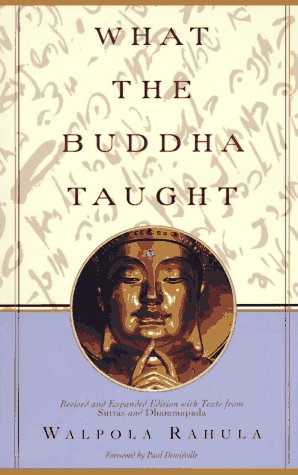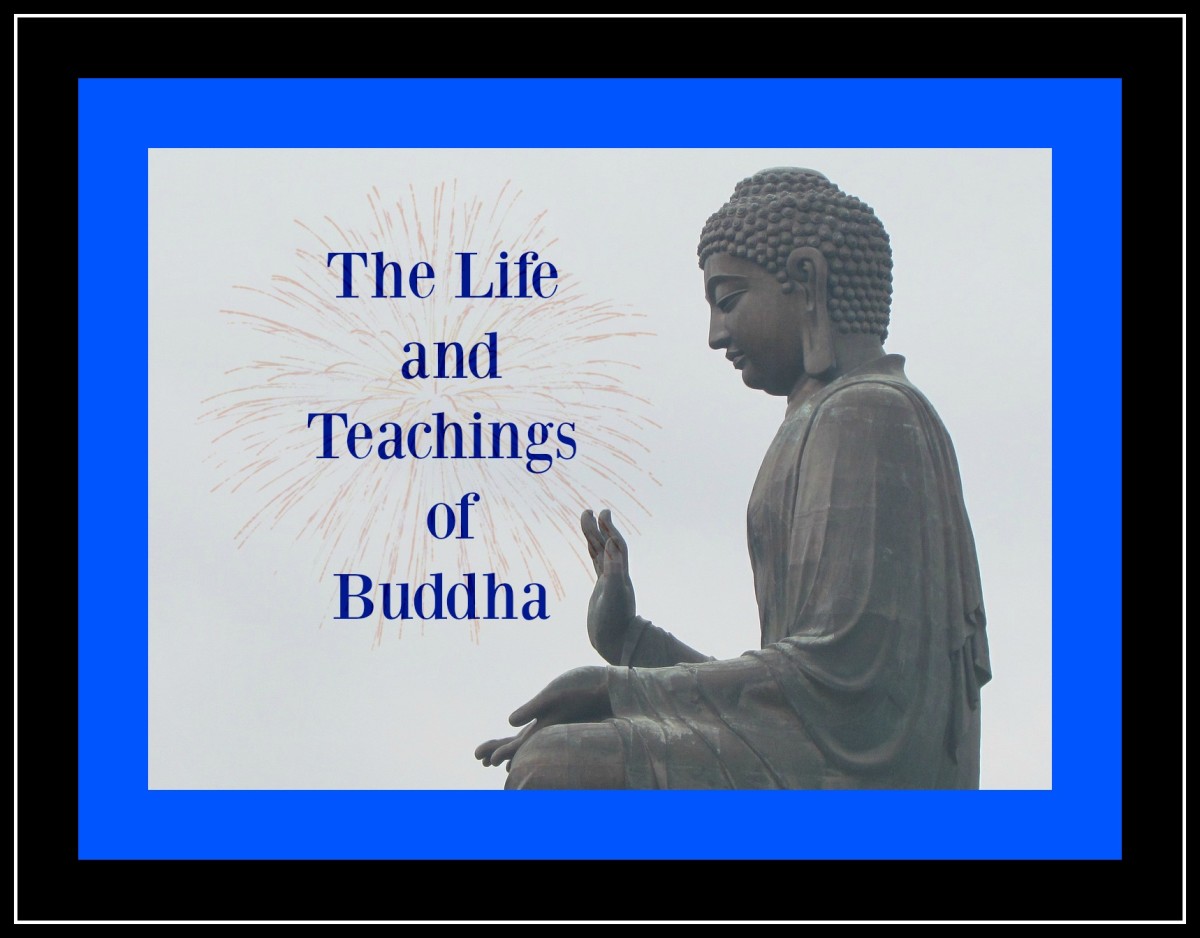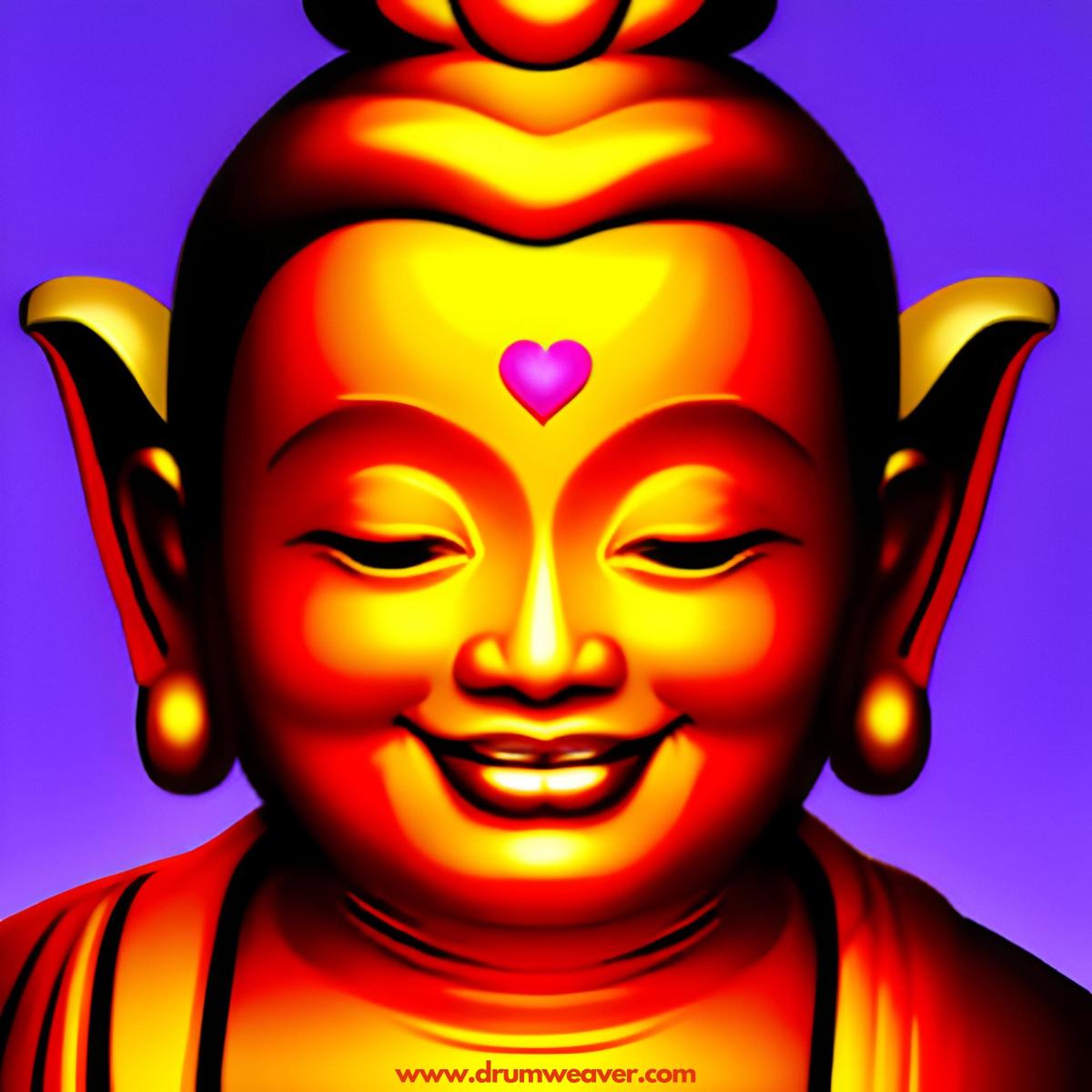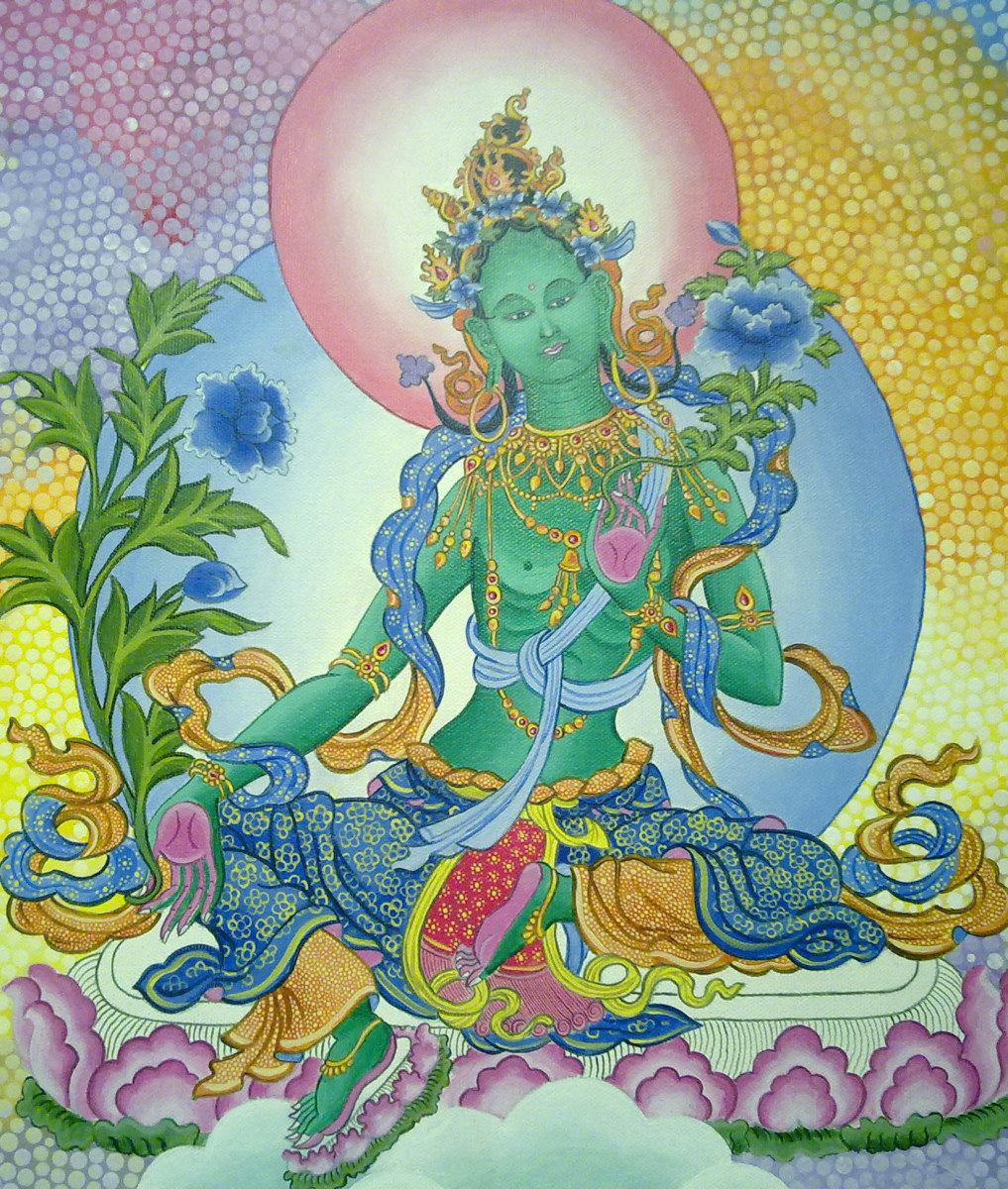Buddha Saw His Shadow: "Groundhog Day" and The Four Noble Truths
The Abhidharma of Puxatawny Phil
That which the Buddha taught, he realized himself, through his own experience.
It can be understood that human learning is primarily an experiential thing. For example, my mother began teaching me about our world by example; by showing me how to live in the world, bit-by-bit, experience-by-experience. Slowly, by my own mimicry, I got it all—and now I can talk, tie my shoe, go shopping, read a book, cook food, and so many other useful things. I imagine that the same has been true for most of my peers, too; we humans are such creatures of imitation! Consistency, rote memorization, and frequent repetition are our prime tools for knowing, and for gaining wisdom. Yet these paths to learning, while quite effective (for can you ever forget how to tie your shoe?) do tend to take time. They take horrendous amounts of time. Excruciatingly extended periods of time…
Painful as it is, any psychologist will tell you that this sort of conditioned learning is the only type that has real staying power. That wonderful movie Groundhog Day is a great example of this "operant conditioning", as it offers a comically painful reminder of our tendency toward resiliency to finally “get it”, almost in spite of ourselves. The movie, while not really “Buddhist” in its orientation, does provide a wonderful elucidation of the Four Noble Truths and the message of the Buddha’s Abhidharma : how we wheedle our way into suffering, time after time, and how we can re-condition ourselves to a more "enlightened" existence. Looking closely at Phil’s life in Puxatawny provides a key for us to use to break through our own stubbornness and predilection to be “completely repeating”.
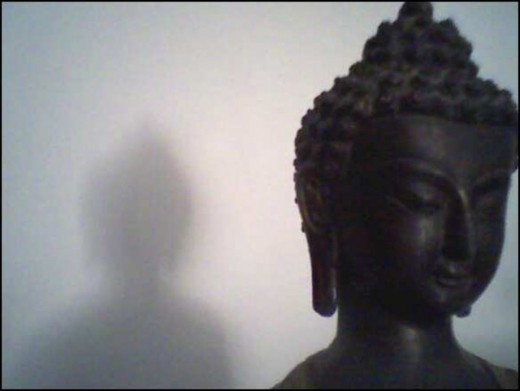
Caught in Puxatawny: The First and Second Noble Truths
The Buddha began his teaching simply by noticing the truth of suffering. Bill Murray's character Phil also recognized this First Noble Truth, albeit in his own way. “Oh, yeah,” he says, shortly after the small crew arrives in town, “like I want to stay an extra second in Puxatawny.” Like most of us, he knows something is “amiss”. He knows life could be better; and like most of us, he just knows life is definitely better someplace else. The bad stuff can’t last forever, now, can it? So Phil leans toward leaving the life he leads now, fixing his dissatisfaction with the promise of a new career with the network. In the meantime, he begrudgingly accepts his annual assignment to cover Groundhog Day festivities in the painfully small town of Puxatawny. What Phil does not realize, however, is the true nature of his suffering is not something that he can cast aside so easily. So despite his best intent, he continues to trudge through the suffering of a human being, suffering through change and conditionality, waiting and hoping that one day the magic career change will come through to fix his life and lend him the happiness he deserves. Then he will be lauded for the special being that he is, and life will be stable and giving, and he will be able to sit above all in his accomplishment.
Not so fast! Phil awakens to find that the next morning is in fact
still the morning from the day before. This is his first clue into the
real nature of his condition, which Buddha framed as the Second Noble
Truth, the origination of suffering, which is this thirst for further
existence. The alarm clock seems to be calling for him to take a closer
look, providing him with another chance to see what is right in front
of him with more clarity. However, Phil chooses to engage his craving
for “better” and “different” with even more vigor, although the
“strangeness” of the repetition of the day makes him a bit
discombobulated and cranky. He remains aloof and, as Buddha himself
might point out, still very attached to the first extreme of attachment
to sensual pleasures. His focus is still very much on himself,
entertaining his sensibilities by playing within his predicament—like
tricking the annoying insurance salesman, the overly chipper B&B
guest, and the owner of the inn. It is just an annoying game, it seems,
so he plays along with it. Frustrated though he may be, Phil still
seems to feel sure that certainly tomorrow won’t be this way. In this
way, he is still grasping the skandhas, the sense that there is a
separate self that is “having” this particular experience. However, by
the afternoon, Phil is tired of the game. In fact, he’s pretty pissed
off at the whole deal. “I’m not playing by their rules anymore,” he
announces to the crew, and so we see him fall into the second extreme
that Buddha cautioned against, nihilism.
Donut with a Cigarette Chaser? -There's a Fix for That
Nihilism is an almost understandable response to suffering; suffering
is hard to sit with, after all. And once Phil recognized the futility
of indulgence, the pain of his situation proved to be too much to bear.
“I don’t worry about anything anymore,” he says, stuffing a donut in
his mouth, following it with a cigarette chaser. “That’s why I’m
special.” Has he found the key to life? Phil certainly thinks he
has—why yes; you can have your cake and eat it too, and ice cream and
coffeecake for that matter. There is no tomorrow, he reasons; so why
not really enjoy today? However, this nihilistic indulgence is won’t
lead him to a state free from suffering, as the Buddha points out in
the Third Noble Truth. Only the “complete cessation of that very
thirst” (Samyutta-nikaya, LVI, II) will allow Phil the “break”
from his predicament that he is searching for. Instead, Phil strives to
milk from his limited situation as much hedonistic joy as he can, doing
things even he would not have otherwise dared to do—multiple one-night
stands, robbery, and even trying to lure his boss to bed. Would that he
could have been as quick as Shariputra to recognize that key that
Buddha taught: “Of things which arise from a cause, their cause the
Tathagata told, and also their cessation” (Mahavagga I.23.5). All
things are impermanent; they arise, perhaps they linger, and then they
cease. And these things are but products of our own faulty perceptions.
But to Phil’s credit, he does learn (at
least) that indeed, all good things must come to an end. And so he
crashes—literally—and the party of his nihilism is over. Now our hero
is desperate to escape his predicament. Loosely followed, he has
awakened to Sonny & Cher no less than 22 times. And 22 times he has
tried and failed miserably to play his way through the moments he has
been given. Now he understands the gravity of his situation, and he
loses it completely, turning himself over to the luxury of dark
cynicism. This existence, he laments, is winter itself: “cold,
gray….and it’s going to last you the rest of your life”. So, for a span
of at least four more mornings, he attempts to kill himself. But this
too does not work, for reasons the Buddha knew; for life and death are
a part of the cycle of cause and effect, of the repetition that is
samsara, the suffering of our very existence.
I Got You, Babe: The Eightfold Path and the End of Suffering
“This, monks, is the Noble Truth of the way leading to the cessation of
suffering [the Eightfold Path],” advised the Buddha
(Dharma-cakra-pravartana-sutra). Phil stumbles onto this path by
accident (only after a few mornings of thinking he must be a god, to
have lived through all he has and still have managed to return, again
and again). What begins as an innocent exploration into “carpe diem”,
such as seizing the opportunity of this repetition to learn to play
piano, Phil soon extends himself into living as a kind and generous
person. “Is there anything I can do for you today?”, he asks his
neighbors; suddenly, he is the spotlight of the community—but not in
the same selfish way he entertained before. No, our hero has discovered
the three trainings, and seemingly has cultivated “right view”, all the
way down.
Or has he? Herein we find a major split between Hollywood
and the Buddha’s teachings. While Phil certainly seems to have a
“right” understanding, it is not samyak, or "complete understanding". For
Hollywood’s notion of “selflessness”—a central point of the First
Turning—is indeed not the absence of self, but the loss of attention to
the self through pure attention (or, “unconditional love”) toward
another. “No matter what happens,” exudes Phil, “I’m happy now because
I love you”. So while the whole of Phil’s experience—at least 40 rounds
of “I Got You Babe”, by my estimation—has separated him at last from
his self-centeredness and brought him into a realm of unconditional
love, he is still entwined in samsara, our primal condition of suffering. His experience does not lead him
to end the cycle of karma and klesha, the cycle of our attachments and suffering; because
although unconditional love is grand, it still is based upon an ideal
of self and other. Additionally, Phil still does not love himself, and he does not
demonstrate that he performs all of his good deeds out of a compassion
driven by the knowledge that there is, in fact, no “other”. No, to the
Buddha, a lost "self" is not a self lost in love; the correct
understanding can only be borne from the experience of seeing beyond
samsara’s dualisms into the unconditional nature of reality. So sorry,
Phil; it looks as though there will be just a few more rounds to go in
Puxatawny after all. And will the groundhog see his shadow again? Or
will he see something else entirely?


